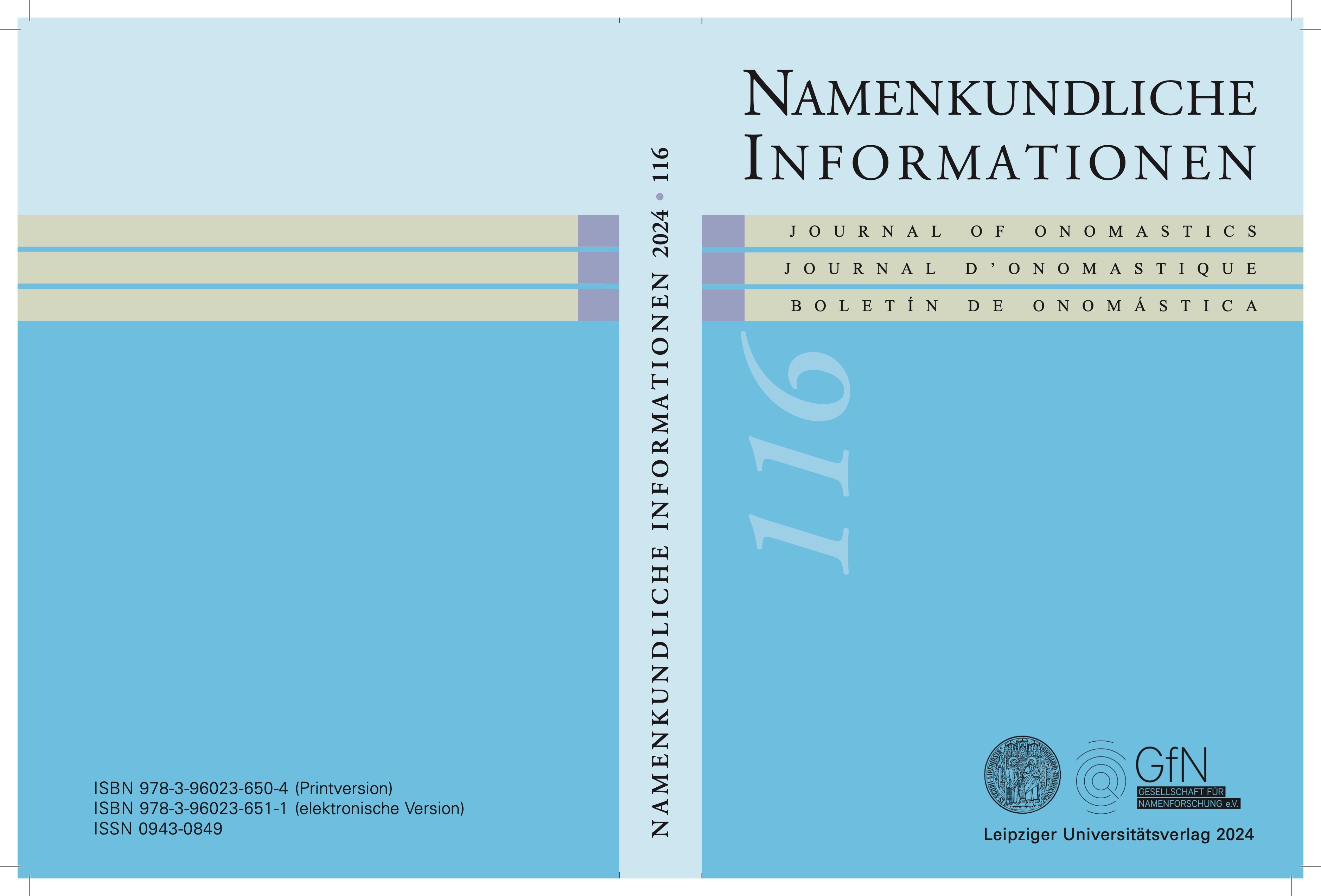Soziokognitive Onomastik und Mobilität: Bezeichnungen für Menschen(gruppen) in Malakka und Macau
DOI:
https://doi.org/10.58938/ni759Abstract
This article explores terms for individuals and groups, such as ethnonyms, in a multilingual context shaped by mobility: the former Portuguese overseas empire or Estado da Índia, particularly the harbour cities of Malacca and Macau. The focus lies on a historical analysis with a scope from the early 16th to mid-20th century. From the standpoint of Cognitive Linguistics, the analysis revealed a gradient transition between ethnonyms (and sometimes glottonyms) and class labels. Practices for naming a colonial Other rely on conventional lexemes applied metaphorically and metonymically to new social actors. Often, these practices are strategies of conscious distinction between one’s in-group and the out-group. Furthermore, perceptions of colonial Others encompass prejudices regarding their language use, which affects one’s own language choice in cross-lingual interactions. The etymological analysis presented here emphasises the relevance of contextual life-worlds, as seemingly synonymous designations for people may entail disparate semantics.]
Downloads
Veröffentlicht
Ausgabe
Rubrik
Lizenz
Copyright (c) 2024 Raphael Dohardt

Dieses Werk steht unter der Lizenz Creative Commons Namensnennung 4.0 International.
Es findet keine exklusive Übertragung von Verwertungsrechten (Copyright Transfer) an die Zeitschrift statt. Die Autor/innen stimmen bei Manuskripteinreichung der Veröffentlichung unter der Lizenz Creative Commons Attribution 4.0 International zu.


